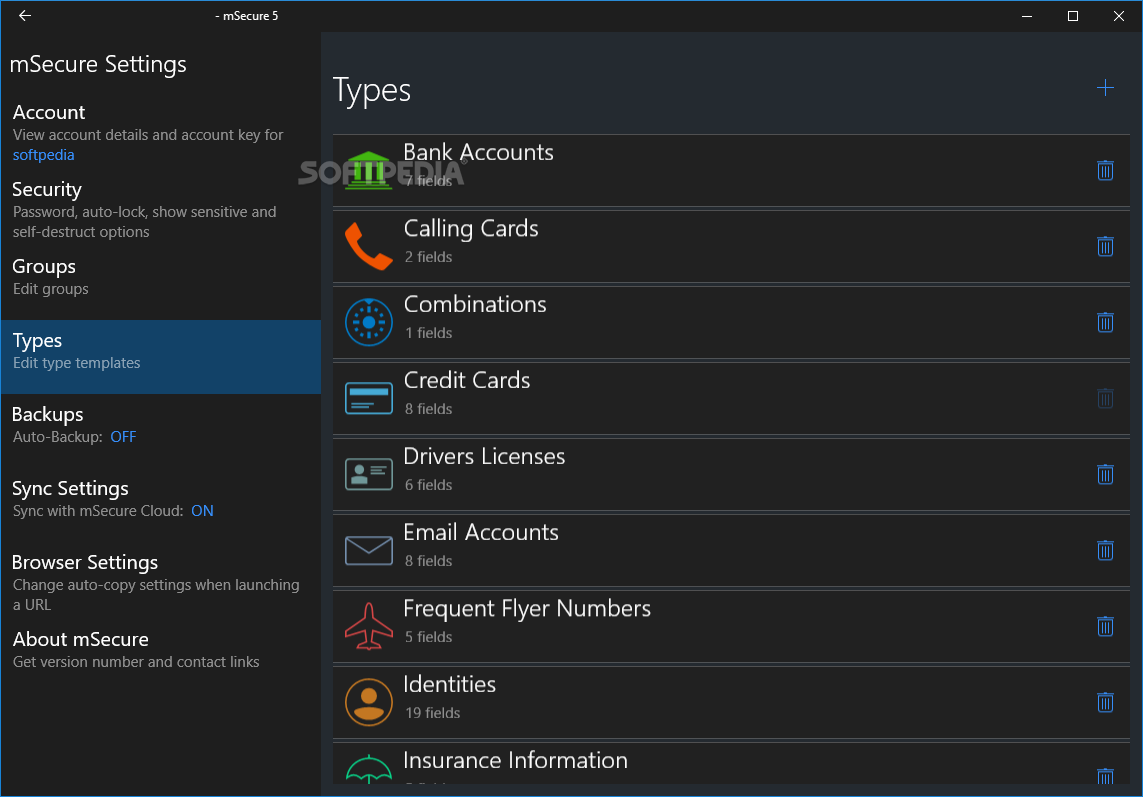

Where that risk becomes higher is if you rely on a cryptographically weak password and a particular individual who has or can hire the necessary skills targets you specifically. In short, although it’s extremely distressing to hear that so many iOS apps aren’t doing as good a job protecting your data as would be ideal, the risk for any given person is very low - and nearly zero if you use a strong password. If locked, the passcodes used by the iPad 2, third-generation iPad, and iPhone 4S are entirely secure unless the device was jailbroken before being locked. Such extraction may not be possible at all on the latest iOS hardware when it’s properly protected with a passcode that’s not easily guessed (don’t pick “1234” or “4444”, for instance).
Backup msecure cracker#
There is more risk if the cracker obtains access to your actual device, but that person must have significant forensic skills and software, and extracting the app data might take an inordinately long time. If you use iCloud for backups or have a strong, secret iTunes backup password, your device backups aren’t vulnerable. App data can be extracted from a local iTunes backup if the backup is unencrypted, or if the backup is encrypted and a cracker knows or can guess the backup password. In order to extract information from one of these iOS apps, a cracker needs physical access to the device and the ability to bypass certain security protections, or access to either an iTunes backup of the device or an image of the device’s storage. (The white paper provides app-by-app details, so you can read about any app you may use.) In all cases, the researchers needed access to the app’s data store, which means first circumventing any iOS security protections, also discussed in the white paper. Of those, 7 had inadequate protections allowing instant recovery of a master key no matter the password’s composition because, the firm said, data is stored with no encryption, protected only with a static password built into the software, or protected by a key derived from flawed cryptography. The Risk Scenario - Elcomsoft analyzed 14 apps for iOS and 3 for BlackBerry OS. Known) over the Internet, which further limits exposure.

The flaws that Elcomsoft has identified cannot be exploited (as far as is currently For starters, access to the app’s data store is required - either via an iTunes backup or an iOS device containing the app and its data - and any iOS security controls must be bypassed first. However, the risk is quite low even without considering the issue of short (six or fewer characters, including letters, numbers, and punctuation) or solely numeric passwords. The list of examined apps includes 1Password Pro, LastPass Premium, and mSecure, three of the most popular iOS password keepers available.

You may see this reported breathlessly as “Password Safes Unlocked!” The reality is nowhere near that worrying, but the
Backup msecure full#
A full explanation is in an associated white paper (PDF) that provides mathematical and encryption details. Short passwords and numeric PIN-style passwords are allowed in such software, although it’s unclear how many users might opt for such weak choices. Major password-keeping apps for iOS use encryption techniques that, depending on the strength of the master password, can be easily overcome in under a day, revealing all of the ostensibly secured passwords, security firm Elcomsoft said in a security conference presentation in the Netherlands.

Backup msecure update#
#1613: M2 MacBook Air and 13-inch MacBook Pro, long-awaited features coming to OS, watchOS 9, TidBITS website changes, tvOS and HomePod update.#1614: 2022 OS system requirements, WWDC 2022 head-scratcher features, travel tech notes from Canada.#1615: Why Stage Manager needs an M1 iPad, Limit IP Address Tracking problems, Citibank cryptocurrency confusion.


 0 kommentar(er)
0 kommentar(er)
